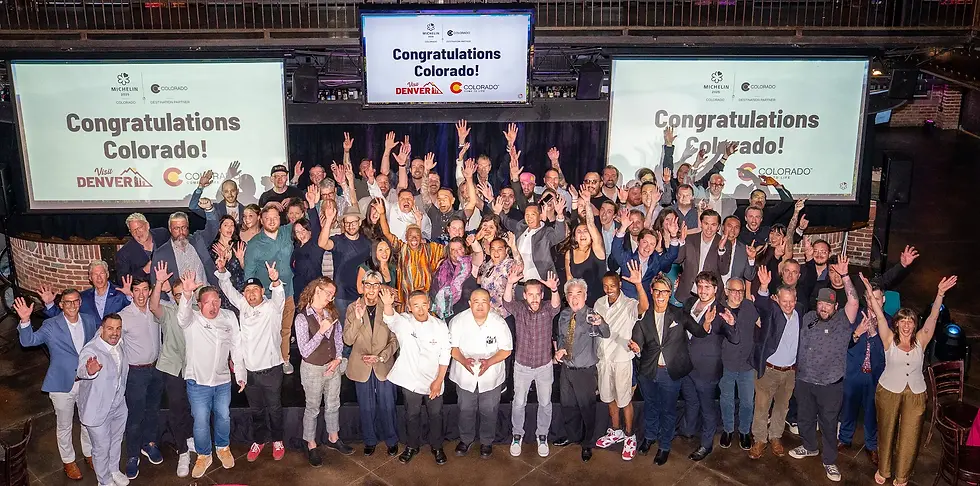Interview of Doug Kingston,International Tax &. Accounting
- Jun 20, 2025
- 4 min read

Could you please introduce yourself to our readers by telling us where you’re from, your educational background, and your professional journey?
I was born in New York and earned my first college degree from the College of William & Mary in Virginia. My original plan was to pursue medical school, but I wasn’t accepted. During a summer visit to my parents—my father was stationed in Brussels with the U.S. Air Force—I discovered that Boston University offered an MBA program locally.
Around that time, I was influenced by several fraternity friends who were accounting majors and quickly landing well-paying jobs. That exposure led me to shift my focus to business. I found the MBA program both manageable and practical—an academically solid and financially wise choice.
While studying in Brussels, I was hired by a local accounting firm, where I worked for three years. Eventually, I transferred to Ernst & Ernst in New York City.
Can you share with us your experience of tax accountant in the corporate world?
After my time at Ernst & Ernst, I joined Price Waterhouse, where I became part of a software development group dedicated to international tax reporting systems. This team of about 200 professionals created tax software used by major U.S. multinational corporations, including several in the Fortune 50. The software supported corporate tax departments and was managed by both accountants and IT professionals.
For seven years—first in Manhattan, then in Boston—I worked closely with clients to implement and use the software, train their staff, and integrate the solution into their existing systems. Price Waterhouse had a hands-on approach: we didn’t just sell the software; we ensured it worked in the client’s environment. That model led to significant wins, such as bringing Raytheon on board.
Eventually, my boss asked me to move to Chicago to replicate this success on a national scale as a condition for partnership consideration. The new role was purely sales-oriented, with a $5 million annual quota and no commission. I quickly realized that I missed the hands-on work I excelled at. After a year and a half, I stepped away, concluding that a sales-only role wasn’t the right fit for me.
Why did you choose to focus on tax compliance rather than becoming a “tax consultant” helping clients reduce their tax liabilities?
In the early stages of my career, I worked in traditional compliance roles—preparing tax returns, much like what I do today. At Ernst & Ernst, my responsibilities evolved into more advisory functions, where I wrote analytical reports and legal memoranda on complex transactions.
At Price Waterhouse, I assisted large corporations in generating their tax returns using proprietary software. While I wasn’t preparing the returns directly, the work required a deep understanding of IRS rules and regulations. Over time, I gravitated back toward compliance, as I found following the rules and ensuring accuracy aligned well with my strengths and professional values.
At one point, you decided to go solo and did relocate to Phoenix. What led to that decisions?
I chose to move to Phoenix primarily because my parents had retired there. After spending years in colder cities—New York, Boston, Chicago, and Brussels—I found the climate in Phoenix appealing. I moved without a job or permanent residence and stayed with family while figuring out my next steps.
I initially attempted to join a major consulting firm, but opportunities in international tax were limited in the Phoenix market. Eventually, I secured a consulting role at Dial Corporation. Later, I transitioned to its finance spin-off, Greyhound Financial (which became Finova), a high-risk lender. I also landed a significant client in the then-booming CD business, which later collapsed.
By that point, I had built enough experience and developed a small but steady client base. That allowed me to transition into independent work, gradually focusing on Canadian clients and international tax matters.
Who are your primary clients today, and what services do you offer them?
As a specialist in international tax law, I primarily serve foreign individuals—mainly Canadians—who own or invest in U.S. residential real estate. I assist them with meeting U.S. tax compliance requirements, ensuring they adhere to federal regulations while managing their cross-border obligations.
How would you compare taxpayer attitudes in the U.S., Canada, and Europe?
There are notable cultural differences in how people perceive taxes. In Europe, especially among wealthier individuals, paying taxes is more accepted—even if it’s not particularly liked. In contrast, the U.S. tends to foster stronger resistance to taxation. Some clients are surprised—or even suspicious—when told they owe money, occasionally questioning whether their tax advisor is working for the government.
That said, North Americans generally show a high level of compliance. Europeans from northern and central countries—like Germany, France, the Netherlands, and Switzerland—also tend to comply reliably, despite their distaste for taxes. On the other hand, taxpayers from southern Europe, parts of Latin America, and some Asian regions often display lower compliance rates.
In short, while few people enjoy paying taxes, actual adherence varies by culture. The highest levels of compliance are typically seen in North America, the U.K., and northern and central Europe.
How can you best be reached?
Email (doug@iTaxCPA.com) is my favorite means of communicating specific details and I prefer the telephone (+1 (602) 595-5885) to explain complicated tax matters.

For additional information, please contact Douglas:
Douglas J Kingston |
C.P.A - International Tax & Accounting |
+1 (602) 595-5885 |
International Tax & Accounting |




Great interview showcasing a thoughtful journey through corporate and independent tax work, with strong emphasis on compliance and real-world experience. The international insights and client-focused mindset reflect the standards you’d expect from a reliable Tax Specialist Arnhem handling complex cross-border tax matters